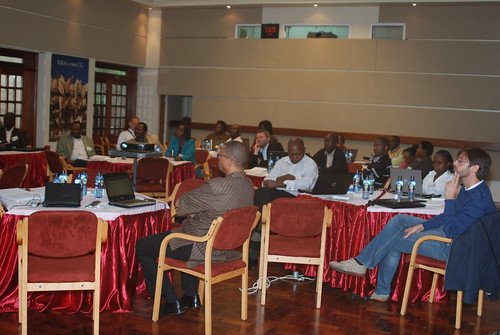An initiative has now mapped over 300 of the world’s ongoing agricultural research projects in Africa. Evelyn Katingi, the map coordinator, says this represents ‘an 86 per cent coverage of information from all 15 centres of the Consultative Group on International Agricultural Research (CGIAR), the world’s pre-eminent group of agricultural research-for-development specialists.’ Katingi leads this initiative at the Nairobi campus of the International Livestock Research Institute (ILRI).
‘CGMap Ongoing Research in Africa’ is the result of a collaborative effort between two CGIAR programs: Collective Action in Eastern and Southern Africa and ICT-KM (Information and Communication Technologies—Knowledge Management). The map makes information about research projects across Africa and the CGIAR consortium accessible to staff, partners and other key stakeholders in African agricultural research.
Information in the map is contributed by CGIAR scientists, who provide details of their projects, including time frame, location, key players and partners involved and contact information.
Started in 2007, this project provides an interactive way of viewing all projects that the 15 CGIAR partners are involved in, allows one to search and find out more about on-going projects and provides links to key players in agricultural research in Africa and beyond.
According to information collected from the map, 21 per cent of reported projects focus on crops, 14 per cent on policy and institutions, 10 per cent on livestock, 5 per cent on land management, 4 per cent on soils and 2 per cent on fisheries.
Most of the projects currently mapped are being conducted in East Africa, with 120 projects in Kenya, 91 in Uganda and 87 in Tanzania. But coverage of other countries, especially Ghana, Nigeria and Zambia, is growing.
A new version of the map launched earlier in the year is attracting increasing numbers of visitors, and thus generating concomitant increasing opportunities for greater collaboration.
The CGIAR demonstrated the use and utility of the CGMap to participants of a Science Week and General Assembly of the Forum for Agricultural Research in Africa (FARA) held 19-24 July 2010 in Ouagadougou, Burkina Faso.
Visit http://ongoing-research.cgiar.org/ for more information or to learn how you can contribute to the research map.


